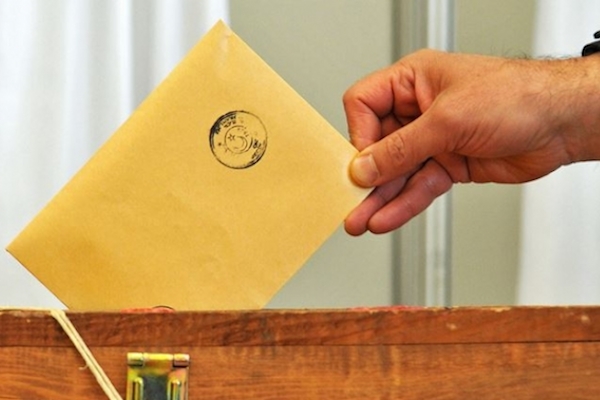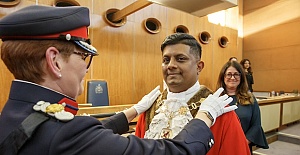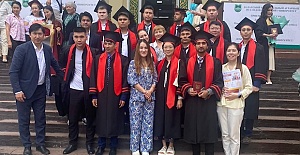ANKARA (AA) – Recep Tayyip Erdogan's road to becoming the country's first president elected by popular vote on Sunday was cleared largely by a constitutional referendum in October, 2007. Prior to that, presidents, whose role was largely ceremonial, were elected by the country's parliament.
But how did the change come about?
In 2007, when the Turkish Parliament gathered to vote for Turkey's 11th president, Turkey's Constitutional Court annulled the first round because the requirement to provide a two-thirds quorum -- 367 members of parliament -- had not been met. That first round, which was held April 27, was largely boycotted by opposition members of parliament, preventing the candidate of the ruling Justice and Development Party, then-foreign minister Abdullah Gul, from being elected president. On April 2007, the Turkish General Staff, the army's supreme body, released a rare e-memorandum saying that Gul's candidacy could be a threat to secularism of the country. In response, the government said it was not going to bow to military's impositions and in any event was respectful of the secular, democratic state, and the rule of law. After the failed attempt to elect Gul, the AK Party called for early general elections in 2007, and the popular vote showed that ruling Justice and Development Party, commonly known as the AK Party, was going to get enough seats in parliament to eventually elect Gul.
The AK Party, under Erdogan's leadership, decided to hold a referendum in October 2007, foreseeing the election of the president by popular vote instead of by parliament. The referendum allowed the president to stand for re-election for a second term, and reduced the term of office from seven years to five and holding general elections every four years instead of five. The referendum also reduced the quorum of lawmakers needed for parliamentary decisions to 184. Sixty percent of the registered voters participated in the referendum and the result was a "yes" to constitutional changes with nearly 70 percent of the votes cast. Following that approval, the people would be able to elect the president themselves. Under Turkey’s 1982 constitution, Erdogan has executive powers including the power to appoint the prime minister and to return laws to the parliament for reconsideration.
He also has the power to appoint members of Turkey’s highest Constitutional Court and public prosecutors at the High Court of Appeals and the Military Court of Appeals.
Despite the ceremonial functions that Turkish presidents have performed in the past, Erdogan promised that he would be a stronger and more active and hard-working president.
By Satuk Bugra Kutlugun and Ilgin Karlidag



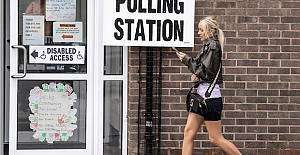 Advice for Enfield residents ahead of the General Election
Advice for Enfield residents ahead of the General Election Sunak promises tax cuts, economic stability, Conservative Party election manifesto
Sunak promises tax cuts, economic stability, Conservative Party election manifesto Ertan Karpazli, an independent MP candidate for the Enfield North constituency
Ertan Karpazli, an independent MP candidate for the Enfield North constituency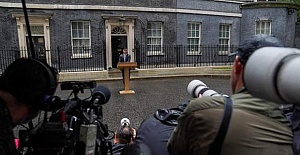 Rishi Sunak announces a general election in a statement outside Downing Street
Rishi Sunak announces a general election in a statement outside Downing Street Residents of Spanish island of Mallorca launch initiative to thank tourists amid protests over mass tourism
Residents of Spanish island of Mallorca launch initiative to thank tourists amid protests over mass tourism Srebrenica Remembered, Lessons for Justice and Peace! YEE London held a reflective event
Srebrenica Remembered, Lessons for Justice and Peace! YEE London held a reflective event British Premier Keir Starmer to reset UK-EU relations with high-profile meetings
British Premier Keir Starmer to reset UK-EU relations with high-profile meetings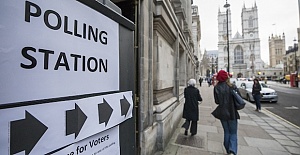 Voters head to polls for UK general election
Voters head to polls for UK general election The Swiss official will take charge of the match between Real Madrid and Atalanta in Warsaw
The Swiss official will take charge of the match between Real Madrid and Atalanta in Warsaw Applications are now open for Walking and Cycling Grants London until 9 September 2024
Applications are now open for Walking and Cycling Grants London until 9 September 2024  Two Circles also appointed as exclusive media sales agency for UEFA Women’s Champions League
Two Circles also appointed as exclusive media sales agency for UEFA Women’s Champions League  England manager Gareth Southgate has resigned two days after defeat by Spain
England manager Gareth Southgate has resigned two days after defeat by Spain Joyce and Snell's planning application gets stamp of approval
Joyce and Snell's planning application gets stamp of approval The amount of bounce back loans fully repaid is just %13
The amount of bounce back loans fully repaid is just %13 Petrol prices higher than they should be, says RAC
Petrol prices higher than they should be, says RAC UEFA and Mastercard renew UEFA Champions League partnership
UEFA and Mastercard renew UEFA Champions League partnership




